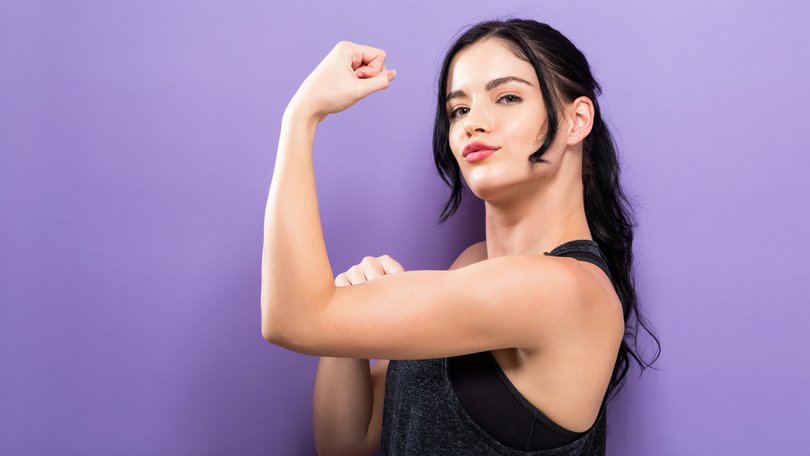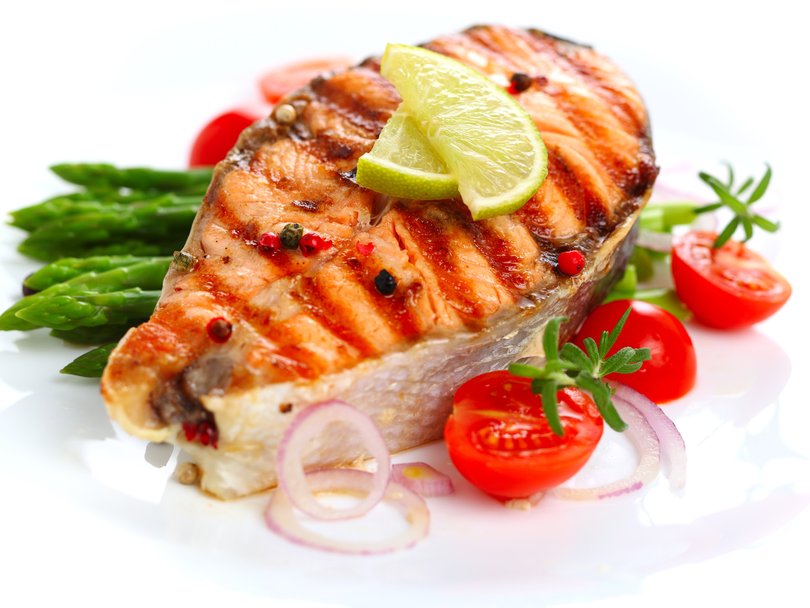SARAH DI LORENZO: Muscle in on the protein: Why you need it and how to get the right amount in your diet
SARAH DI LORENZO: Get right amount of protein you need for your muscles.

Our three macronutrients are carbohydrates, fats and protein. Protein is so important for so many things in the body — repair, growth, development, keeping us satiated, structural support, enzymes, hormones, transport, immunity, cell signalling, energy, muscle function, metabolism, fluid and acid-base balance.
Muscle helps with for healthy ageing, longevity and quality of life. So how much protein do you really need to gain that all-important muscle?
It’s the most important nutrient for muscle-building but there are many factors that can influence how much protein you really do need, there is no “one size fits all”. These factors include your age, current diet, exercise regime and your current body composition.
Sign up to The Nightly's newsletters.
Get the first look at the digital newspaper, curated daily stories and breaking headlines delivered to your inbox.
By continuing you agree to our Terms and Privacy Policy.Muscle growth, also known as hypertrophy, is when our muscle fibres experience damage through resistance training and then repair themselves stronger and larger. When there is not enough protein in the diet, the body can’t repair muscle which means muscle growth is ineffective.
Protein is metabolised by the liver into amino acids by the liver for the body to utilise.
The general guidelines for protein can be defined by preventing deficiency and supporting muscle growth.
To prevent deficiency you would need to be eating 0.8 grams per kilo of your own body weight but to build muscle you would need around 1.6g to 2.2g per kilo of your body weight and this is for those who are doing regular resistance training.

Athletes or body builders would be having around 2.4g per kilo of body weight.
So many people think more protein means more muscle. This is not entirely true, but if you are not eating enough protein and training you won’t see progress.
Eating more protein does not mean more muscle, you need to have the right amount.
Too much protein will be turned into glucose or stored as fat — it needs to align with your training.
When you do consume protein does matter — you just can’t eat all your protein in one meal.
It is best distributed throughout your day.
I recommend protein every three to five hours to support muscle protein synthesis.
My general rule is around 20g to 40g per meal, spread over each meal. Another good tool is to look at the palm of your hand and half the fingers, this is how much protein you should have per meal.
The best source of protein is animal based.
Just 100g of chicken has 31g of protein, one egg has 7g and fish sits around 24g of protein per 100g.
Legumes are also good sources of protein and just half a cup of chickpeas contains 20g of protein.
Other good sources include beef, pork, Greek yoghurt, milk and cheese.
Plant-based foods like beans, lentils, tofu and quinoa are also good sources, but you do need to combine them with other sources to have a complete protein.
My tips are to always make sure each meal has protein.
For example you could have eggs for breakfast, or Greek yoghurt and fruit garnished with nuts.
A protein shake is always a good option.
Make sure your lunch and dinner include a source of protein and snacks that are excellent are nuts, cottage cheese, cheese or a good quality protein bar.
To gain muscle be sure you are getting between 1.6g to 2.2g per kilogram of body weight and each meal needs to have a source of protein.
Keeping track of your journey, consistency and doing food preparation is key to success.
Raising the bar
Regular readers will be happy to know 10:10 by Sarah Di Lorenzo protein bars are now much easier to find, after always selling out online.
I could never really find a protein bar on the market that ticked all the boxes for successful weight loss — they were either too hard, too chewy, tasteless, too big, too high in calories, had artificial sweeteners, and the ‘healthier’ ones were too high in carbohydrates.
So I created a snack for busy people which would satiate appetites without tipping over on calories, and they taste like a treat too.
The four flavours are available now exclusively at Woolworths nationally.

